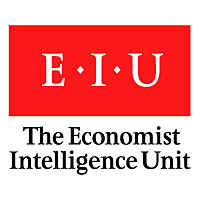- Only 22% of survey respondents across eight countries were aware of the years they should expect to be retired
- Only 33% could identify the leading cause of death in their country
- Respondents in Japan and South Korea showed the most accurate understanding of their current and future prospects
- Respondents in India and China showed least understanding of their current and future prospects

These are the key findings of Reality check-ups: Knowledge gaps in health, wealth, and quality of life, a report released today from The Economist Intelligence Unit (EIU). The study,supported by MetLife, surveyed 1,600 people across eight economies—Australia, China, Hong Kong, India, Japan, Malaysia, South Korea, and the US—to test general knowledge on questions such as how long respondents should expect to live, what diseases they should be most concerned about, and where their country ranks in terms of retirement income. Their answers were compared to the “reality” of what citizens of their countries typically experience in these areas based on data and forecasts from the EIU, World Health Organization, World Bank and other credible sources.
The results show clearly that more knowledge is needed in order for people to make the most beneficial decisions about their health and wealth needs. The overall average “correct” response rate for the ten questions asked was only 37%. The knowledge gap is important because without proper understanding and planning people are likely to encounter greater health and wealth problems as they age. Collectively, this could create a much larger problem for societies as a whole.
Even in rapidly-aging countries such as Japan and South Korea, a large percentage of survey respondents (46% in Korea and 48% in Japan) under-estimated how long they are likely to live after retirement.
Across seven of the eight countries surveyed (India was the exception), cancer was the health concern most identified by respondents, chosen as the top concern by 41%% from a list of 11 other diseases and afflictions. Cancers (in aggregate) are the leading cause of death in Japan, South Korea, the US, and Australia, but in Malaysia and India the leading cause of death is coronary heart disease and in China it is stroke.
Respondents in Japan and South Korea exhibited the strongest knowledge of the issues, although with an average accuracy rate of 47% in Japan and 44% in South Korea, that figure is arguably still low. Respondents in India (27%) and China (34%) showed the largest knowledge gap, likely as a result of the scope and pace of change both countries are experiencing.
As individual citizens take on more responsibility for matters related to their health and wealth, the results of the survey strongly suggest that more education needs to be provided in these areas. Experts say this can start as early as grade school, but it also must continue throughout life.
Chris Clague, the editor of the report, said:
“Health and wealth are fundamental issues that everyone worries about, but it’s clear from the survey results that many, if not most people, need to improve their understanding of key concepts. While there is an element of personal responsibility in this, the public and private sector alike can and should do more to help in terms of education.”
